Early Christian Martyrs (1800s)
Waves of Persecution
Although the earliest Christian presence in China dates back to the Tang Dynasty (618-907), no evidence exists of Christian influence of any kind in Guizhou until 1765, when the first Catholic missionaries arrived in the province.
The Vatican handed responsibility for Guizhou to the Paris Foreign Missionary Society. A succession of Frenchmen soon began to arrive, and by 1771 they counted 210 converts throughout the province.
Many of the French missionaries and their Chinese converts suffered terrible persecution as they sought to establish churches in Guizhou. Waves of brutality hammered the fledgling believers, but they stood firm and rejoiced at having been found worthy to suffer for the name of Jesus Christ.
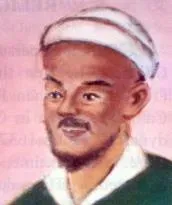
Wu Guosheng. [CRBC]
One of the first followers of Christ to be martyred for the faith in Guizhou was Wu Guosheng, who was widely known as a violent man before he met Jesus. The transformation in his character was so stark that after surrendering his life to God he led 128 of his relatives and friends to the faith. Wu reportedly
"resolved to be a true disciple of Christ and to do whatever was necessary to see God's kingdom established in his home area, even if it meant hardship and persecution to himself. Through the power of prayer and his bold witness the number of believers in Longping grew to more than 600 by 1811....
Just when a major breakthrough seemed imminent in 1814, a widespread persecution broke out. On April 3 of that year Wu was imprisoned and tortured in an attempt to break his spirit and cause him to denounce Christ, but he endured the cruel punishments and remained firm in his faith. Wu wrote a letter to his anguished wife from prison, exhorting her to 'Be loyal to the Lord and accept His will.'
In prison, Wu was a great example to the other inmates. He was full of the joy of the Lord and constantly led them in songs of praise.... His last words before being executed on November 7, 1814, were 'Heaven, heaven, my true home!'"
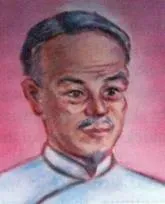
Zhang Dapeng. [CRBC]
One of Wu Guosheng's colleagues, a 61-year-old man named Zhang Dapeng, was executed for his faith the following year. Zhang grew up in a non-Christian home in Duyun without any knowledge of the gospel. As a young man he moved to Guiyang, where he went into the lucrative silk business.
Sometime later, Zhang heard the gospel and he placed his faith in Jesus Christ. He was not allowed to receive baptism, however, because at the time of his conversion he kept a concubine, which was a standard practice for wealthy Chinese men of the era. In 1797 a preacher pointed out that the eternal ramifications of living in such a sinful union far outweighed the temporal benefits. Zhang was convicted of his sin, and he left his concubine and was baptized.
After hearing of the baptism, Zhang's two younger brothers strongly opposed him, enraged that his association with Christianity had tarnished their family's good name. Undeterred, Zhang felt he had wasted the first part of his life and he became a zealous evangelist, sharing the good news with as many people as possible. He even purchased a house on a busy city street so he could reach more unbelievers.
More than 200 Chinese Christians were arrested and tortured during a major crackdown in 1815. Zhang went into hiding but was betrayed by his brother-in-law. In prison Zhang shared the gospel with his cellmates, and was offered freedom after his family members begged for clemency. The prison authorities agreed he could gain his release on one condition—he must first renounce his faith in Christ. Zhang Dapeng refused and was executed on February 2, 1815.
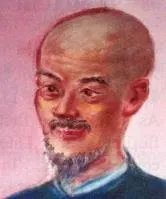
Liu Wenyuan. [CRBC]
A few decades later, Liu Wenyuan was added to the roll of martyrs for Jesus Christ in Guizhou. Born into a simple farming family in 1760, Liu grew up helping his family grow vegetables, and he later inherited the farm.
When Liu was 37, a Christian passed through his village and told him about the way of salvation. Liu was so convicted by the Holy Spirit that he immediately went to Guiyang, the provincial capital, to learn more about the faith. His soul was like a dry sponge, soaking in every drop of information. Liu repented of his sins and put his faith in Christ, and he began to share the gospel with everyone he met.
Extreme hardship was not far away for Liu Wenyuan. In 1800 he was arrested with five other believers and exiled to northeast China, "where he was sold as a slave and for 30 years was treated worse than a dog by that family. He suffered all torture and humiliation, making no complaint but rather offering it all to God."
In 1830 a general pardon was declared for all exiled prisoners throughout China. Now aged 70, Liu made the long journey home, only to find that after 30 years' absence, all recollection of him had long since faded. Liu was kept from utter despair, however, by the comfort of the Holy Spirit and the promise that the Lord Jesus would never leave nor forsake His children. Finally, after much effort, he was able to locate his wife and two sons, who were now grown adults.
Liu returned to growing vegetables to earn a living, but four years later the authorities launched another severe persecution against Christians. This time the 74-year-old Liu was ignored, but his sons and a daughter-in-law were arrested. Having been separated from his family for so much of his life, Liu Wenyuan "disguised himself and succeeded in meeting his sons, whom he encouraged to be steadfast in the faith. However, a soldier recognized him as a Christian, immediately jailed him and put him to the severest torture. He was not discouraged, but prayed constantly and sang praises to God."
Despite again being threatened with exile, Liu refused to renounce his Savior. The authorities, maddened by his stubborn faith, dispatched Liu's second son and daughter-in-law to northwest China. A few months later his eldest son died in prison. Through his grief, Liu was nevertheless overjoyed that his sons had persevered for Christ.
Meanwhile, back in Guizhou, Liu Wenyuan was in prayer one day when a white cloth appeared before him in a vision. When he reached out to pick it up, the cloth disappeared. Liu took it as a sign that he would soon die, for in China white cloth is associated with death and mourning. A short time later, on May 17, 1834, the provincial authorities in Guiyang ordered his arrest and execution. When it was carried out, astonished eyewitnesses reported, "A ball of fire came down from heaven and rested over his head, and an angel appeared to wipe the blood from his face. The angel carried his soul to heaven and the next day his wife came to carry his body away for burial in his own vegetable garden."
Five Years of Fury
A period of relative calm came upon believers in Guizhou, with few martyrdoms for Christ during the next few decades. The peace abruptly ended in 1857, however, when a fierce and sustained persecution broke out. By 1862, when the storm subsided, many believers had been put to death, and Christians were left in disarray throughout the province.
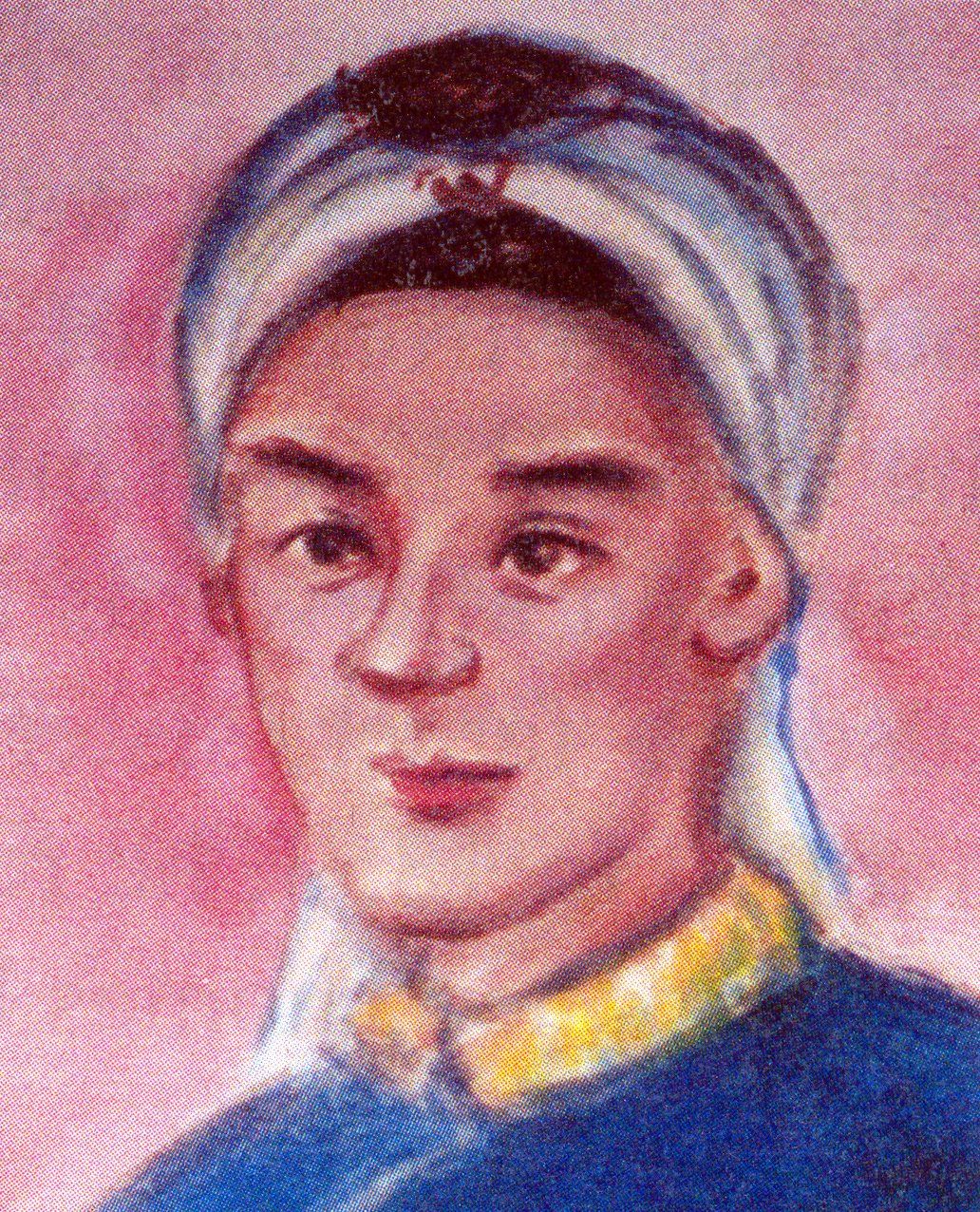
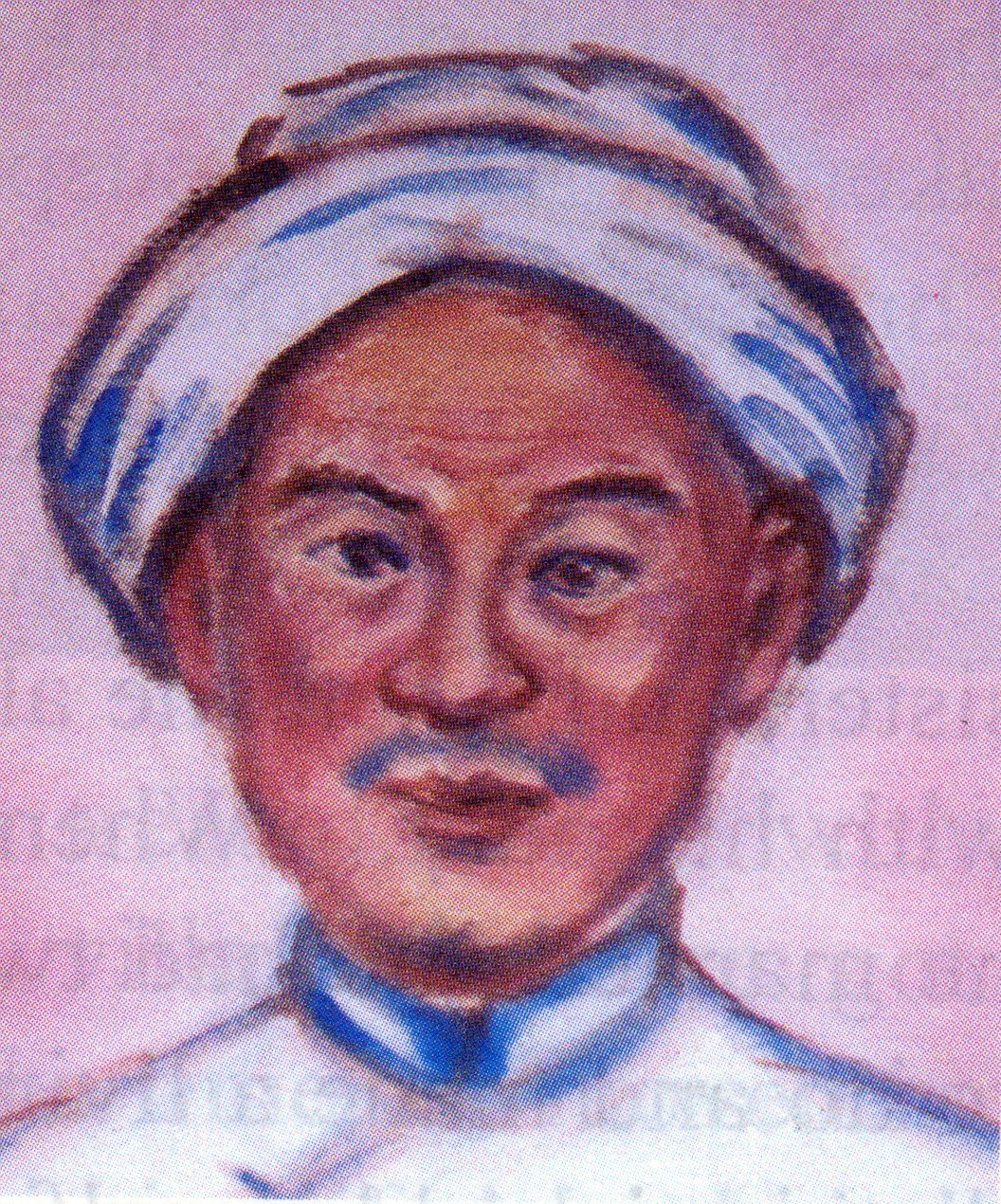
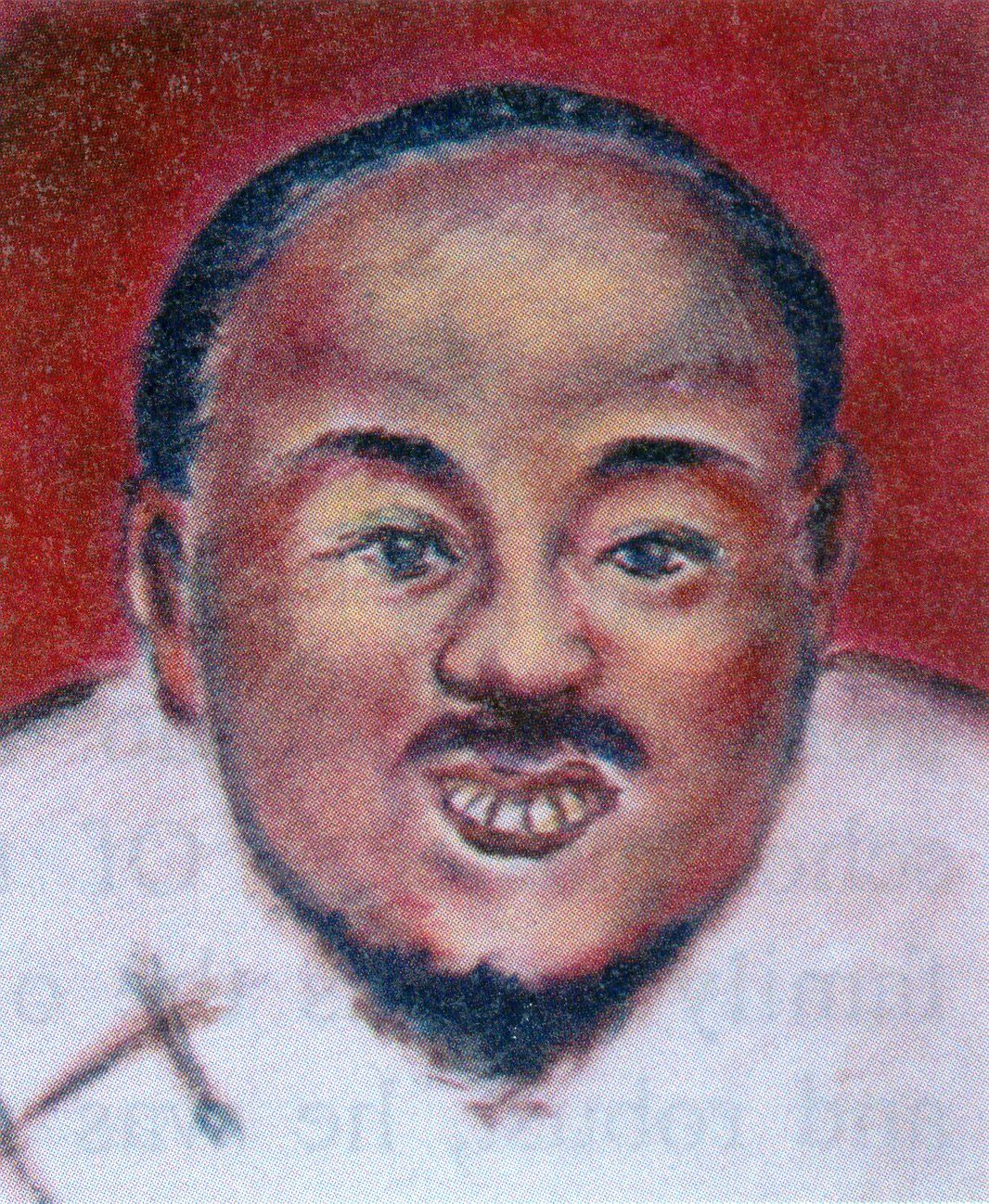
Lu Tingmei, Wang Bin, and Agatha Lin Zhao. [CRBC]
In 1857, three believers were killed at Guiyang. One of them was Lu Tingmei, a respected Christian from the Bouyei minority group. By the time he was 38, Lu was a wealthy man with a wife, two sons and a daughter. He joined a Buddhist sect, but it failed to satisfy his inner longing for peace and joy. When he read some Christian books, however, the words had a profound effect on his heart and mind. He renounced his involvement with the sect and decided that Jesus Christ was the truth. From that time on Lu was a zealous disciple, and he brought his father, sister and some friends to the faith.
Lu Tingmei's zeal for the Lord incensed many, and in 1854 he was falsely accused of treason. He was horribly tortured in prison before finally, on December 14, 1857, he was led to the execution ground along with fellow believers Wang Bing and Agatha Lin Zhao.
Wang Bing was a gifted evangelist. In 1854 he was sent to Pingyue and Weng'an to preach the gospel, and many people came to Christ. The following year he visited Pu'an, where the same thing occurred. Wherever Wang went throughout Guizhou he left behind new converts and strengthened the faith of believers.
Agatha Lin Zhao came from Guizhou's County. Even before her birth, Lin's family had suffered for the Lord Jesus Christ, with her father imprisoned for the faith.
When Lin was arrested and appeared before a magistrate, the wicked man mocked her vow of chastity and insinuated that no woman of such beauty could possibly have remained a virgin. This disgraceful slander angered Wang Bing and Lu Tingmei. They spoke up in defence of the 40-year-old Lin Zhao, and in a furious rage, the magistrate "condemned all three to death and they were executed the following day. After death, stripped of her clothes, she was discovered to be indeed a virgin, and the magistrate admitted his mistake."
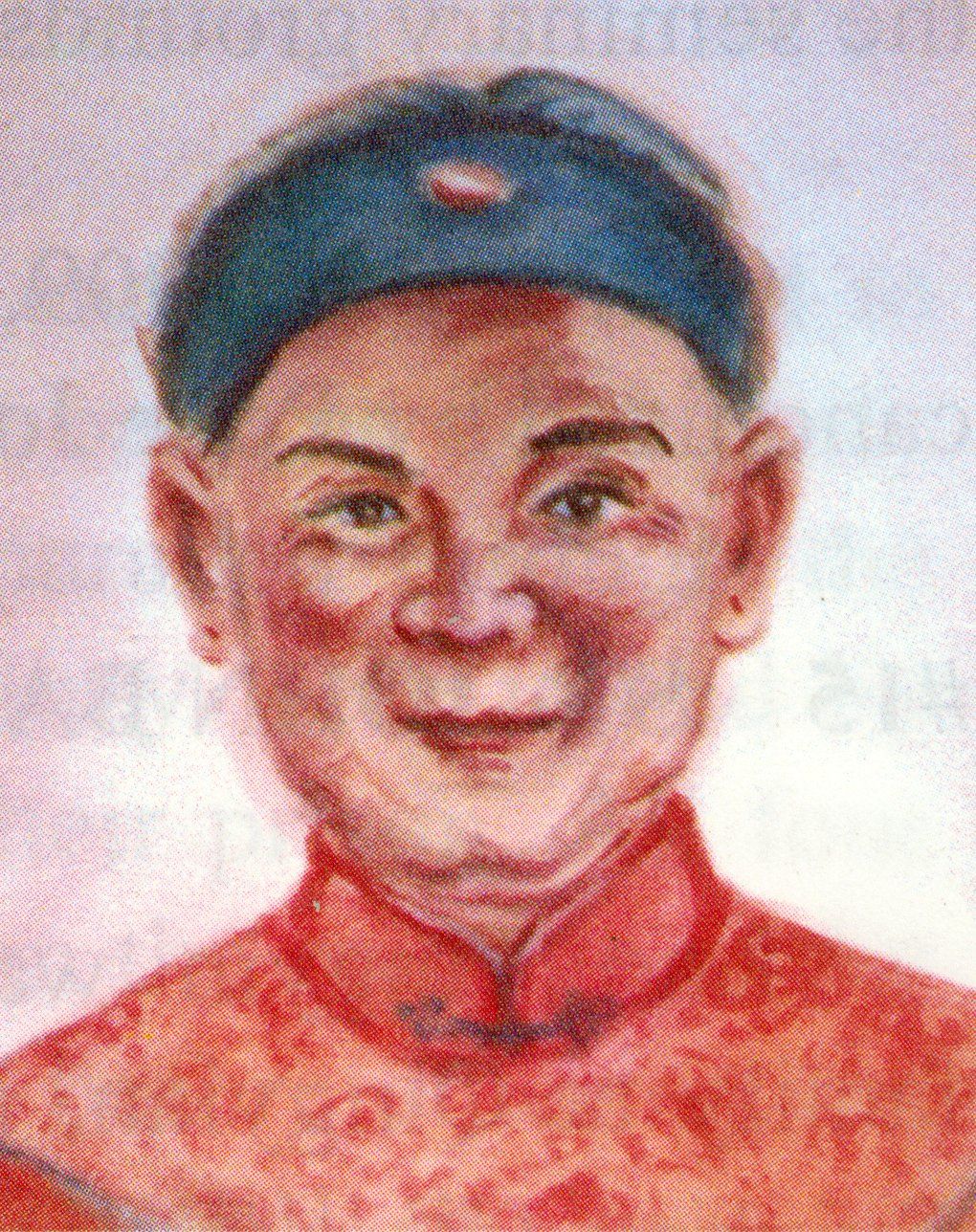
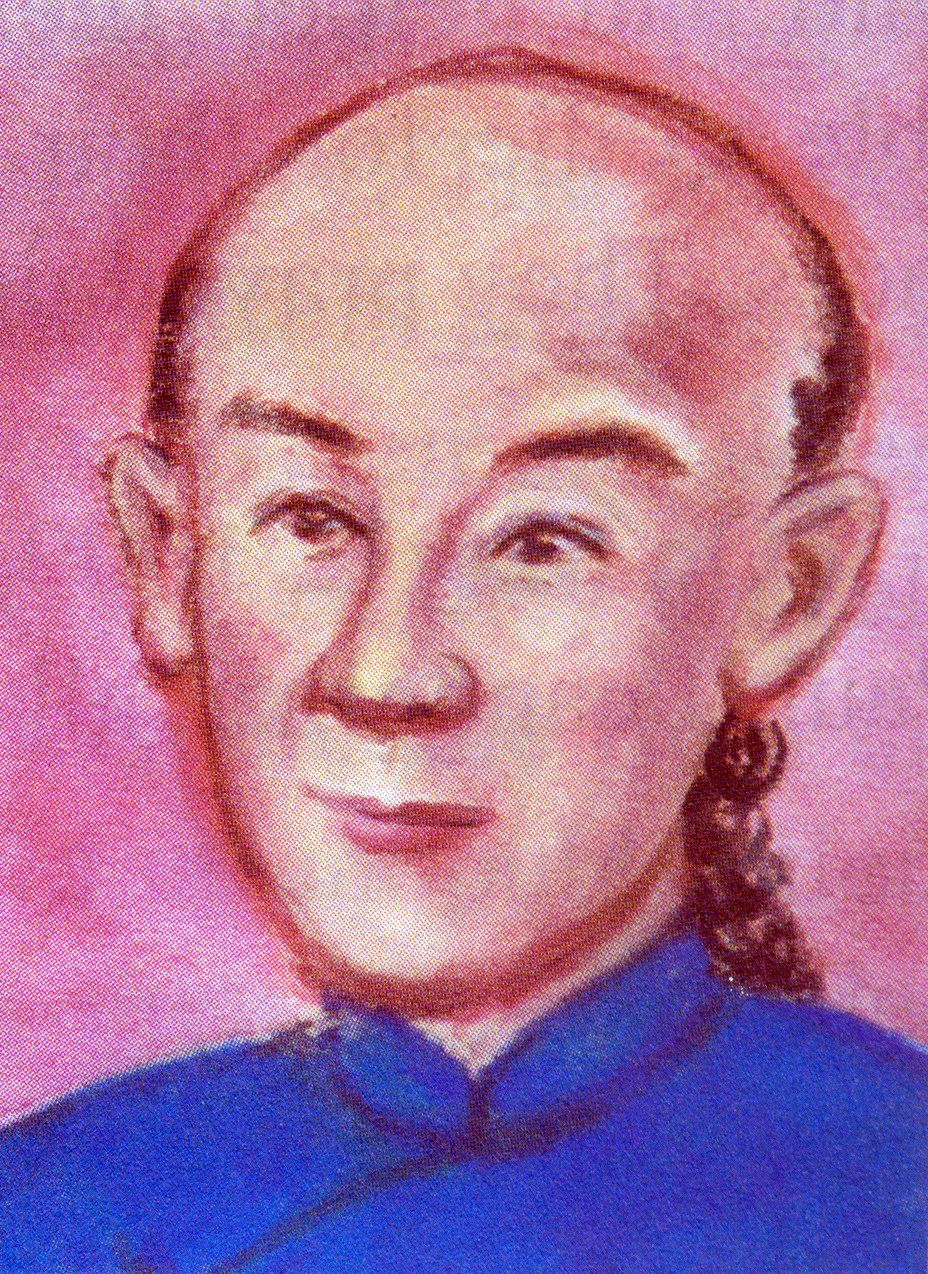
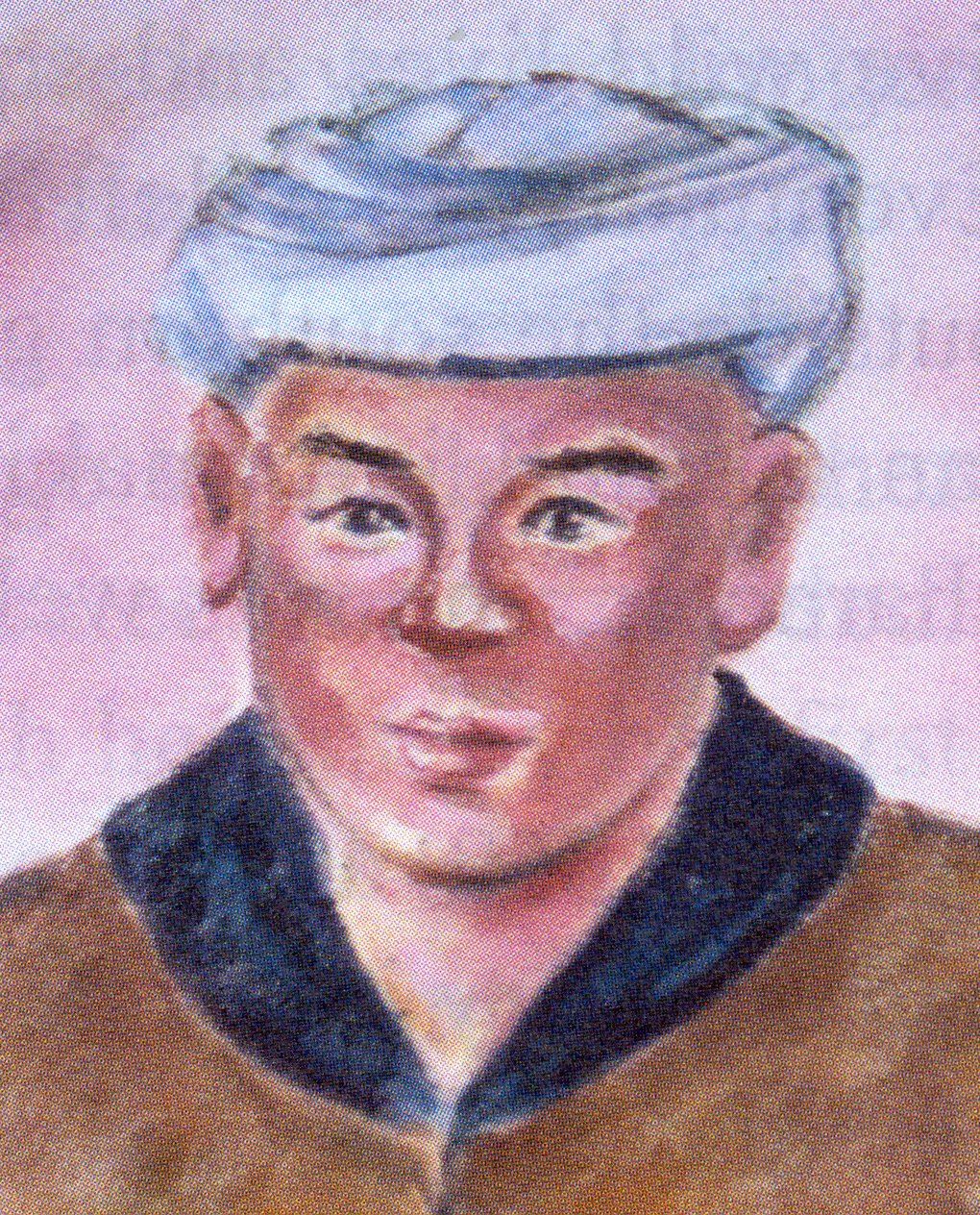
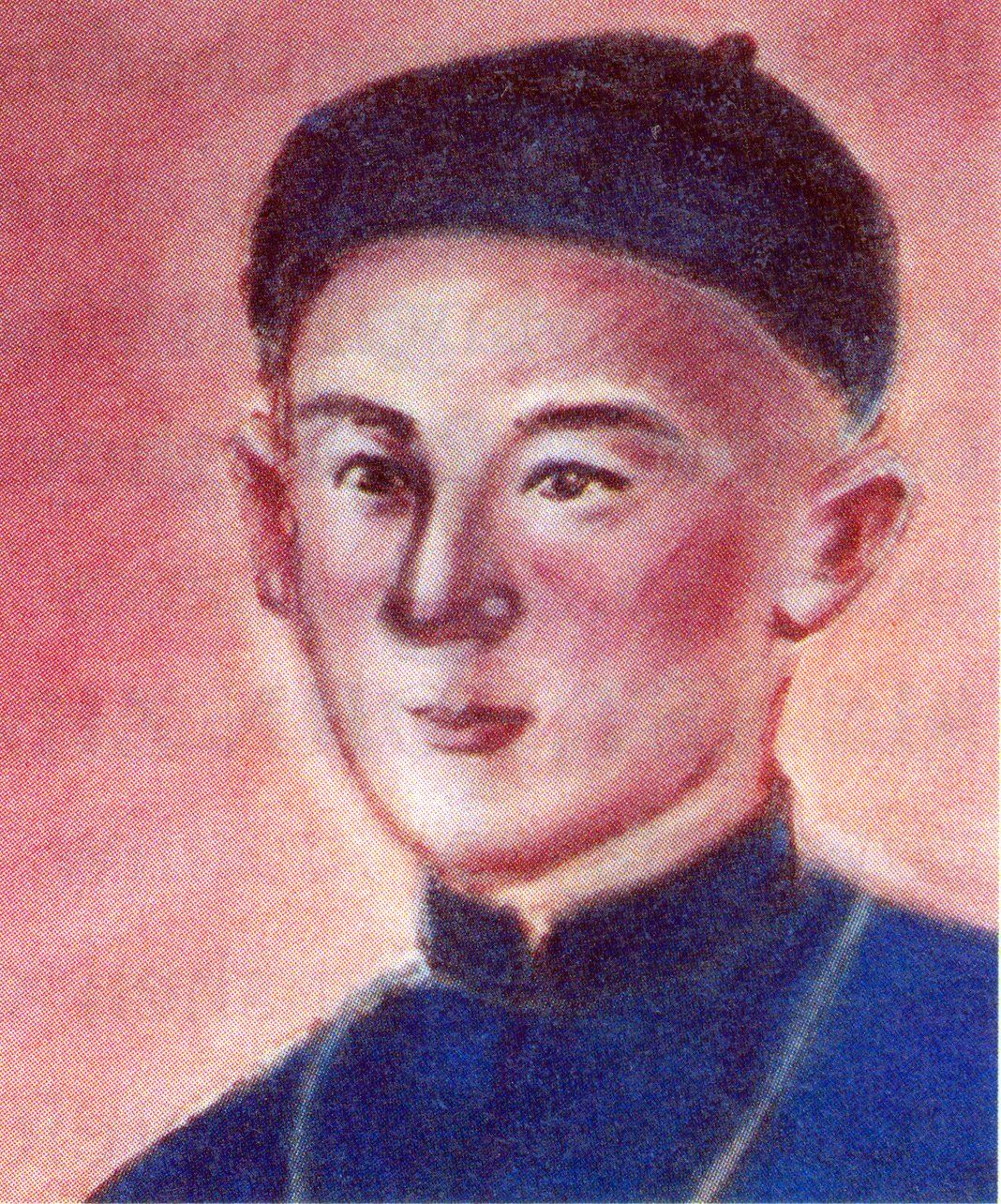
Luo Tingyin, Zhang Wenlan, Chen Changping and Martha Wang-Luo Mande. [CRBC]
Two years later, in July 1861, local officials persecuted the faculty and students at a Bible school in Yaojiaguan. One of the teachers, Luo Tingyin, was captured and dragged off to the city.
Luo was saved after he heard a street preacher share the gospel. He was transfixed; the words seemed to burn in his heart and soul, and he became a Christian and was baptized soon after. One account of his life says, "His zeal brought not only his wife, but also his parents and the whole household to believe in God. Then, continuing to rely on God's grace, he was able to bring many people to the faith."
As the 36-year-old Luo Tingyin was bound and being hauled off to Guiyang for trial, the soldiers met up with students Zhang Wenlan and Chen Changping, who were returning after buying provisions for the school. The soldiers bound the trio and took them to an abandoned temple, where they entertained themselves by torturing their helpless victims for days. Luo's wife came and pleaded with him to return home and take care of her and their children. Knowing that the only way to gain his freedom was to deny Christ, Luo "insisted on her remaining firm in her commitment to the Lord and to care for their two sons."
On July 29, 1861, the emperor sent a decree ordering the release of the three Christians. The magistrate was not happy and purposely delayed the publication of the decree so that he could put Luo, Zhang and Chen to death.
Meanwhile, a 59-year-old cook at the Bible school, Martha Wang-Luo Mande, decided to serve the imprisoned men by bringing them food and washing their clothes. The captors mocked and ridiculed Martha for her servitude, but she refused to be intimidated, believing that by serving her brethren she was serving Christ. On the day that the three men were executed, Martha was washing their clothes at the riverbank. One account says:
"When they were being led to the execution ground, she followed along in spite of the soldiers' threats: 'I will cut your head off!' Not to be scared off, she answered, 'If they can die, so can I'... All four showed such courage, being able to die for their faith, that people saw only peace and joy on their faces. They prayed up to the very moment they were beheaded."
Five Martyrs at Kaiyang
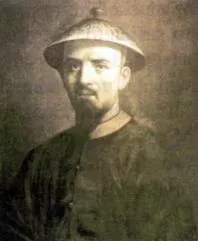
Jean-Pierre Néel.
In February 1862, another group of Christians was put to death in Guizhou. This time a 30-year-old French missionary, Jean-Pierre Néel, was numbered among the five who were slain in Kaiyang.
Néel was arrested with four Chinese believers (Chen Xianheng, Wu Xueshang, Zhang Yianshen and Lucy Yi Zhenmei) when a mob of 100 men, some on horseback, descended on the place they were staying. The mob "tied the French missionary's pigtail to the tail of the horse. He was made to walk or run according to the whim of the horseman, to the great joy of the troops."
Before the executions were carried out, soldiers were permitted to abuse and torture the prisoners at their pleasure, but all efforts to make them renounce Christ were firmly rejected. They were not tempted to trade in the treasures of Christ for momentary relief.
The execution date was set for February 18, 1862. In the morning, the five faithful believers were bound and led through Kaiyang, where people lined the streets to jeer and mock them. Taking the humiliation with joy, the Christians asked God for strength. They were beheaded, starting with Jean-Pierre Néel. Eyewitnesses testified that immediately after he died,
"A beam of light appeared in the sky. The officials and all the non-Christians saw it and were surprised. The persecutors hung the heads of the five martyrs on the town gate as a warning to the people against faith in the Christian religion, but some believers by night secretly removed them and put them in one coffin, which they then buried in an old tomb."
Such was the sustained ferocity of opposition in Guizhou that by 1886, more than 120 years after first arriving, the Catholic churches contained a total of just 5,000 members throughout the entire province. By that time they had been joined in Guizhou by the first Evangelical missionaries.
© This article is an extract from Paul Hattaway's book 'Guizhou: The Precious Province'. You can order this or any of The China Chronicles books and e-books from our online bookstore.





